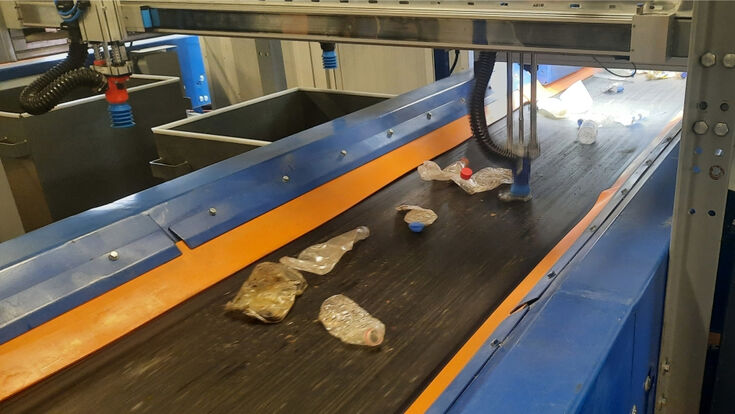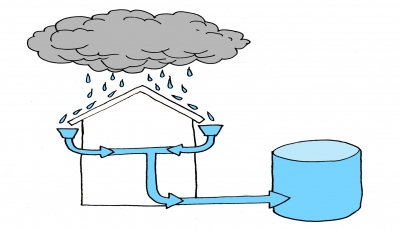Reclaim Waste Melbourne: Advanced Methods for Effective Liquid Waste Removal
Wiki Article
Fostering Source Performance and Environmental Management With Fluid Waste Elimination Programs
In the world of environmental stewardship, the administration of liquid waste stands as an important point where resource effectiveness and environmental defense assemble. With a lens of positive engagement and tactical foresight, the landscape of liquid waste management introduces a tapestry of challenges and possibilities that beckon us to explore the course in the direction of a greener and even more lasting future.Significance of Fluid Waste Removal
The importance of liquid waste removal lies in its important function in protecting environmental health and safeguarding public well-being. Liquid waste, otherwise effectively handled, can pose serious hazards to environments, water resources, and human health. Through effective elimination procedures, dangerous compounds such as chemicals, pollutants, and microorganisms are prevented from polluting the environment and creating detrimental impacts.Proper liquid waste removal additionally assists in preventing the spread of illness and reducing the potential for groundwater contamination. By securely taking care of liquid waste, the danger of waterborne ailments and pollution-related health and wellness concerns is substantially minimized - Liquid waste removal. Additionally, efficient elimination methods add to maintaining the general sanitation and aesthetic appeals of areas, thus improving the lifestyle for residents
Moreover, liquid waste removal plays a vital role in supporting sustainable growth and ensuring conformity with environmental regulations. By sticking to proper waste management businesses, methods and sectors can decrease their ecological impact and show company duty. Inevitably, spending in durable fluid waste elimination programs is important for promoting environmental stewardship and fostering a healthier, safer future for all.

Benefits of Reliable Disposal
Efficient disposal of liquid waste not just safeguards environmental health and wellness and public health but likewise produces various advantages that expand beyond prompt containment steps. One vital advantage of efficient disposal is the decrease of air pollution in water bodies and dirt. By effectively handling fluid waste, the threat of contamination lowers, preserving communities and securing biodiversity. In addition, reliable disposal techniques contribute to resource conservation. Through processes like recycling and energy recovery, valuable resources can be extracted from liquid waste, promoting sustainability and decreasing the stress on basic materials. Adopting efficient disposal methods can lead to cost savings for businesses and communities. By maximizing waste monitoring processes, organizations can simplify procedures, lessen disposal costs, and potentially generate revenue through the sale of recycled products. Generally, the benefits of efficient liquid waste disposal are complex, including environmental management, source effectiveness, and financial benefits.Technologies for Waste Therapy
Utilizing innovative technologies for waste therapy plays a critical function in guaranteeing the reliable management and risk-free disposal of fluid waste. One of the key modern technologies employed in fluid waste therapy is biological therapy.Advanced oxidation procedures (AOPs) have gotten popularity for their capability to degrade consistent natural pollutants in fluid waste via the generation of very responsive hydroxyl radicals. Membrane technologies like reverse osmosis and ultrafiltration are effective for dividing contaminants from liquid waste streams. Additionally, thermal treatment methods such as incineration can be employed for the complete devastation of hazardous parts in liquid waste. In general, the assimilation of varied therapy modern technologies ensures extensive and eco-friendly monitoring of fluid waste.
Duty of Regulations and Conformity
Reclaim Waste In the world of fluid waste administration, adherence to regulative frameworks and compliance requirements is vital for securing environmental health and wellness and sustainability. Laws play an important function in governing the correct handling, therapy, and disposal of liquid waste to avoid injury to environments and human wellness. By establishing clear guidelines and criteria, governing bodies make sure that companies and individuals associated with fluid waste monitoring operate in an eco accountable way.Compliance with these regulations is not just a legal need but additionally an honest obligation to shield the environment for current and future generations. It involves applying finest techniques in waste collection, disposal, treatment, and transport to reduce environmental influence and promote resource performance. Non-compliance can lead to fines, lawful activity, and reputational damage for companies, highlighting the value of maintaining regulative criteria.

Future Fads in Waste Management

One more key fad in waste monitoring is the adoption of advanced data analytics and expert system to optimize waste collection routes, enhance arranging processes, and boost general operational efficiency. These technologies enable waste management companies to make data-driven decisions, leading to set you back savings and environmental advantages.
Additionally, there is an expanding focus on the development of decentralized waste monitoring systems, such as onsite therapy facilities and mobile waste handling systems. These systems offer versatility and scalability, permitting more reliable waste handling in diverse environments.
Verdict
Finally, cultivating resource efficiency and environmental management through liquid waste elimination programs is vital for sustainable development. Reliable disposal approaches, progressed technologies for waste treatment, and stringent policies play vital functions in decreasing environmental influence. Looking in advance, continuous development and renovation in waste management techniques will be essential for addressing the expanding challenges of fluid waste disposal.In the world of environmental stewardship, the administration of fluid waste stands as a vital juncture where resource performance and environmental security assemble (Industrial waste water treatment).Making use of advanced modern technologies for waste treatment plays an essential function in making certain the reliable monitoring and safe disposal of liquid waste.In the world of fluid waste management, adherence to regulatory structures and compliance standards is vital for guarding ecological health and sustainability.In final thought, promoting source effectiveness and environmental security with liquid waste removal programs is crucial for sustainable development. Looking ahead, continual innovation and renovation in waste monitoring techniques will certainly be crucial for resolving the expanding obstacles of fluid waste disposal
Report this wiki page